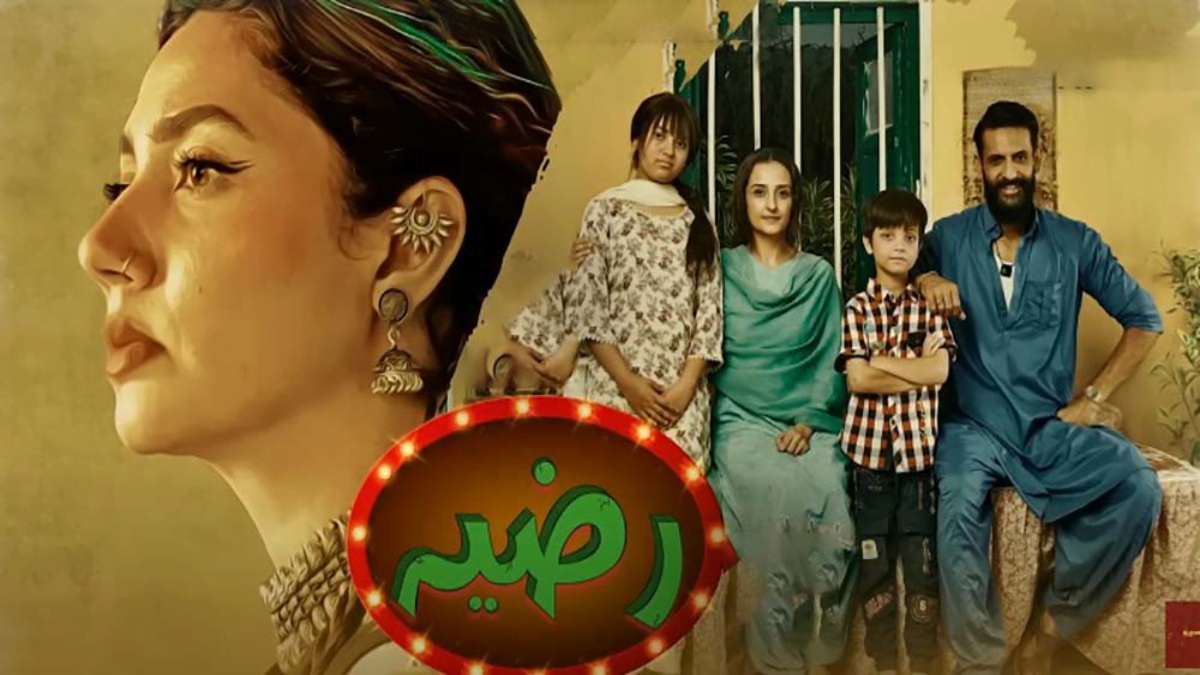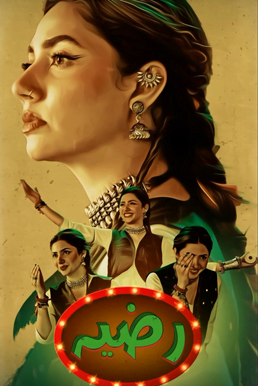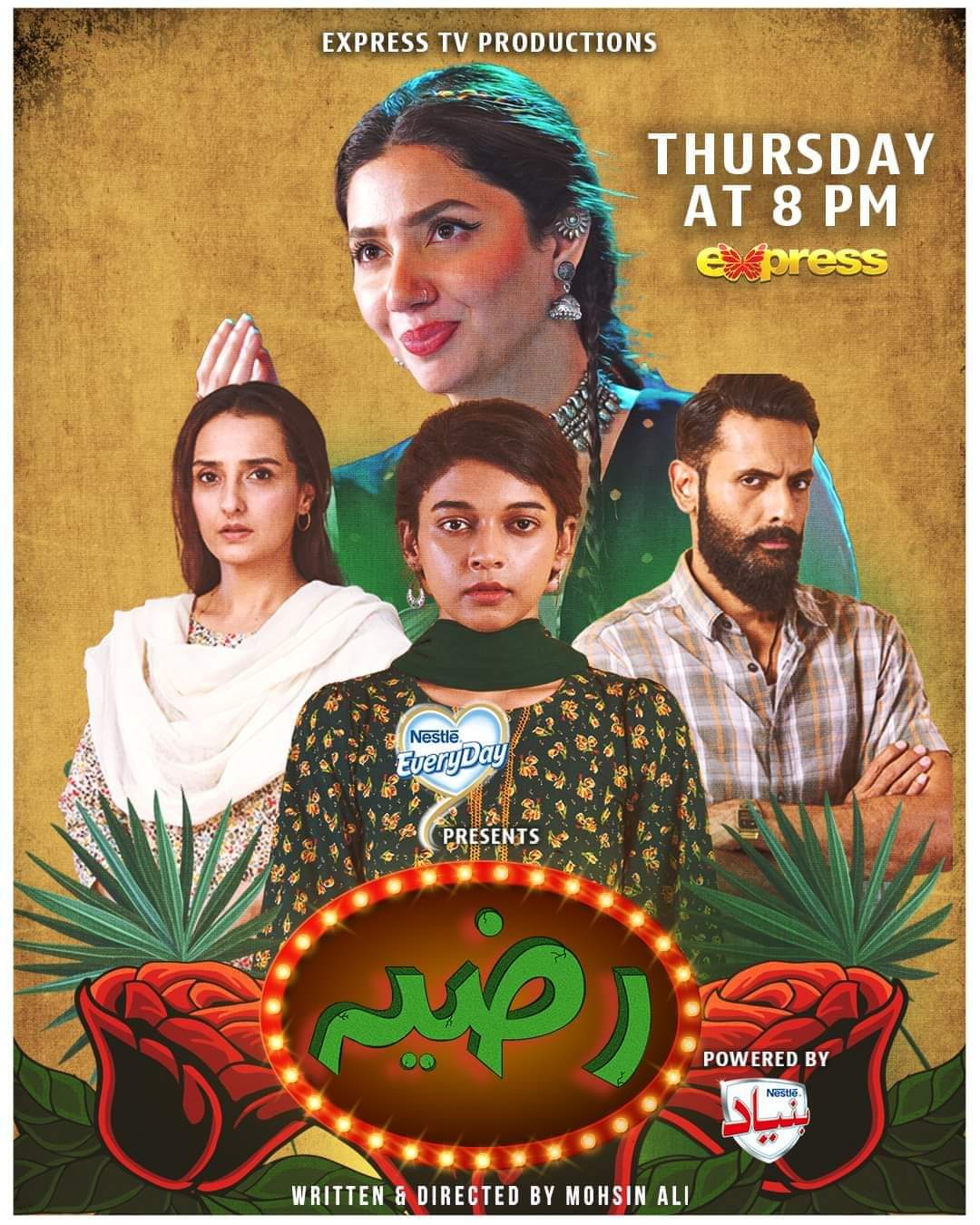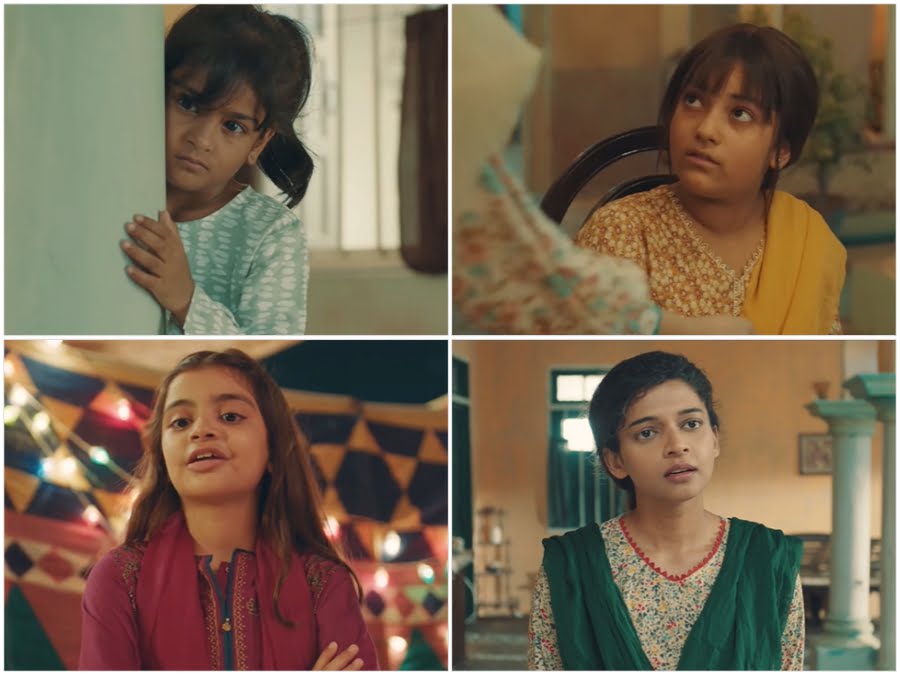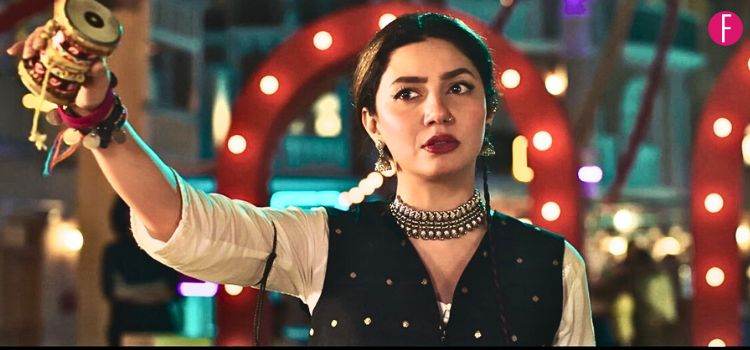‘Ab tum badi ho gayi ho!’(Now you are a grown up girl!)- This phrase is inevitably heard by almost all South Asian women while growing up. This very sentence inspired Mohsin Ali, the writer and director, to create his signature project Razia (2023), which has left an indelible mark on the Pakistani drama industry. Razia is a six-episode mini-series which presents the life story of a girl named Razia (Ayeza Khan, Umm Laila, Shaheera Jalil Albasit) as she grows up and navigates her life through a patriarchal, unwelcoming and hostile social milieu. Though the story is based in Pakistan, it could easily be a story of any small town in South Asia. A compelling narrative of a young girl’s defeats and triumphs, Razia is one of the most ordinary yet extraordinary pieces of content that we have come across recently.
Razia: an ordinary story made extraordinary
The series opens up with a mela, a carnival where a story-teller (Mahira Khan) is all set to present and act out her story to a crowd, eagerly waiting to hear from her. The storyteller along with two of her associates narrates the story which begins with the birth of a girl, Razia. The doctor in the hospital informs Saleem (Mohib Mirza) about the critical condition of her wife Zohra (Momal Sheikh) who is undergoing labour.
It is through her that we see the most ordinary and mundane ways through which girls are discriminated against, ignored, sabotaged and excluded.
She stresses that either the child or the mother- only one of them can be saved. Worried, Saleem asks her whether the child is a girl or a boy. ‘If the child is a boy, save him!’ he asserts. This opening scene sets the tone for what was to come. Though both the mother and the child are saved, the latter happens to be a girl who is named Razia. It is through her that we see the most ordinary and mundane ways through which girls are discriminated against, ignored, sabotaged and excluded.
From early on in her life, Razia realises that the way she is treated by her parents and others around her has a farq (difference) from the way her younger brother is treated. She is denied new clothes, toys and other amenities that her brother enjoys so gleefully. Her sense of lack is so well communicated in the scenes where she stands at one of the corners of her chowk (hall), longing for what she doesn’t have, wondering the reasons for such a gendered denial.
Her clothes are coordinated with her mother, not out of love but because her father is not ready to spend on her and hence the extra piece of clothes that remains out of her mother’s dresses are used for her. There are numerous sequences which feel so close to home and evokes the audience, especially women who could relate to them at so many levels.
There are numerous sequences which feel so close to home and evokes the audience, especially women who could relate to them at so many levels.
All these instances are so pervasive and so common that they do not get space on the screen, as screens- television and cinema are supposed to present things that are grand, extraordinary and unusual. Here comes the craft of Mohsin Ali, whose heartfelt writing and engrossing direction brought out the significance of it all onto the screens. The excellence of this series centrally lies in its dialogues which pierce right through your hearts and through the patriarchal mindsets and practices that pervade our part of the world. ‘Zamana-e-jahiliyat mein beti paida hote hi dafna dete the, hum zinda rakhtey hein taqi roz dafna sakein!’ (In the dark ages, they used to bury their daughters as soon as they were born. We keep them alive, so that we can bury them everyday). Lines like these interrogate the everyday ordeal and suffering of women in our part of the world like no other.
Of struggles, friendship and the fall
As the story progresses, every now then the story-teller in the carnival comes up with her monologues. Played brilliantly by Mahira Khan, the story-teller presents a powerful critique of patriarchal society and its treatment of women. Covered in dark humour and wit, she supplements the story of Razia and makes us cry for her defeats and cheer for her triumphs.
When she is 10, one day suddenly her father comes and tells her that she shall not go out to play because she has ‘grown up’ and grown up girls remain at home. With so much darkness around her, the only relationship in her life that gives her strength is her friend Mannu aka Manohar (Abdullah, Hasher, Kaleem Ghori) who remains her biggest cheerleader and a strong support in moments of despair. Despite Zohra repeatedly telling her that ‘ladkiyan ladkon se dosti nahin karti’ (women should not befriend men), Razia and Mannu forge a friendship that is equal, unconditional and empowering.
As Razia grows up, the intensity and magnitude of difficulties in her life continue to increase. At home, everything whether big or small could only be earned through struggle. She has to fight with her mother to eat even a ‘murghi ki tang’, the legpiece which is ‘kept aside’ either for her father or brother. She fights to get a decent education. Despite outstanding performance in her school, she is the one who is denied opportunities to learn, which are redirected towards her brother who is explicitly not interested in them.
All these realities reflect in the indicators pertaining to nutritional levels and educational enrollment of women in South Asia, as they have to fight and bargain for the most basic rights.
All these realities reflect in the indicators pertaining to nutritional levels and educational enrollment of women in South Asia, as they have to fight and bargain for the most basic rights. However, despite all the difficulties that come her way, Razia remains resilient. She questions and interrogates everything. Outside the four walls of the house, a more gory and brutal world awaits her. From name calling to eve teasing and harrassment- Razia experiences it all. Even this couldn’t break the spirit of Razia as she remains as fierce as as resilient as ever. Till, came the question of marriage.
‘Auratein qeemat to ho sakti hein, lekin qeemat ada nahin kar sakti’ (Women can become the currency, but can never pay it)- Zohra tells Razia. Women have historically been sacrificed, disposed of, given away as ‘compensation’ for wrongs committed by men. Razia also “became the price” which her father pays to her husband Irfan (Kashif Hussain), for the deeds committed by her brother Ali (Arman Sami).
The aftermath of it brings so much violence and agony for Razia which is portrayed brilliantly by Shaheera with her expressions, body language and gestures, most of it without any dialogues. This marks the fall of Razia but not the end of her story and the end remains for the viewers to be watched and be felt for themselves. Razia and her struggles, in parts or in totality, are representative of the life of an average South Asian woman, portrayed sensitively and sensibly.
‘Cinderella! Na shehzadey ka intzaar kar’: from Razia, with love!
The novelty value of this series lies not only in its success to represent women’s ordinary extraordinarily but also in its attempt to defy the portrayal and dealing of women’s issues in dominant and mainstream South Asian content, especially television. Both in India and in Pakistan the “terror of TRPs” reign as TV serials continue to run stereotypical saas-bahu sagas, which glorify masculinity and violence against women. Razia, on the other hand, unveils the intricacies of our gender relations with a newer and more sensitive outlook. The brilliant screenplay and powerful storytelling is accentuated by the effective music. Mohsin Allah Ditta’s background music coupled with two wonderful tracks by Adnan Dhool and Fabiha Hashmi binds you to the world of Razia.
Additionally, apart from the life story of Razia, the series also carries with itself a touch of being a socio-political commentary on our times. Dialogues like- ‘Ladki ho kehkar itna haq martey hein ki wo haq mangna hi bhool jati hai. Ladki na hui, jamhooriyat ho gayi, compromised!’ (They deprive you so much saying you’re a girl, that she forgets how to ask for her rights. As if she is not a girl but democracy, compromised!) is a wonderful take on how the women’s question and democracy are intrinsically linked and compromising one automatically compromises the other. Unfortunately, both are severely compromised in today’s times.
Overall, Razia, as a story, in its execution and viewing experience is an emotion, a vibe and more than that a journey that every individual who watches it goes through. For women, it might be a moment of personal catharsis. As you finish watching it, Razia’s loss feels personal and so do her victories.
As much as this series is a gory tale of oppression, it is equally a glittering and empowering story of resistance, hope and perseverance. Despite everything she goes through, Razia rises from the dust every time to take the steering wheel of her life in her own hands. As the story ends, the song ‘Cindrella’ is an ode urging women to lead their own lives and not wait for a man to take over. A masterpiece in storytelling, Razia dismantles South Asian patriarchal (non)sensiblities on television, one scene at a time!
